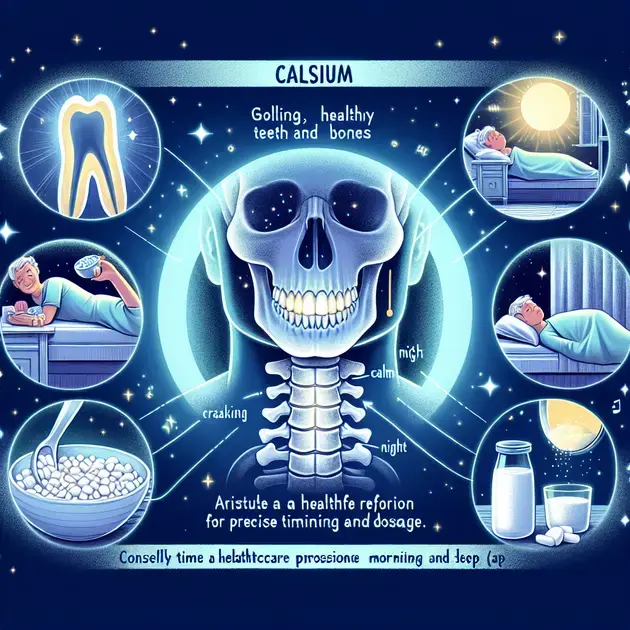Calcium: The Key Mineral for Strong Bones and Teeth
Calcium is an essential mineral that plays a crucial role in maintaining the overall health and functionality of our body. While it is widely recognized for its role in bone and teeth health, its importance goes beyond that. Calcium is also present in our blood and is involved in various vital functions.
One of the key functions of calcium is its role in building and maintaining strong bones and teeth. Over 99% of the calcium in our body is stored in these skeletal structures, providing strength and stability. From childhood to old age, consuming adequate amounts of calcium is essential for proper bone development and preventing conditions like osteoporosis.
But why is calcium so important for our bones and teeth? Well, our bones are living tissues that undergo constant remodeling. Throughout our lives, old bone tissue is broken down and replaced with new bone tissue. Calcium provides the necessary building blocks for this continuous process of bone formation, ensuring that our skeletal system remains strong and healthy.
In addition to bone health, calcium also plays a crucial role in various other bodily functions. It is involved in muscle contraction, nerve function, blood clotting, and regulating the heartbeat. Calcium ions act as messengers in transmitting nerve impulses, allowing proper communication between cells and facilitating essential bodily processes.
It is worth noting that while calcium is crucial for maintaining good health, it needs to be obtained through our diet, as our body cannot produce it. Dairy products, such as milk, cheese, and yogurt, are excellent sources of calcium. However, for individuals who are lactose intolerant or follow a vegan or plant-based diet, alternative sources like fortified plant-based milk, leafy greens, tofu, and almonds can provide adequate amounts of this vital nutrient.
The recommended daily intake of calcium varies depending on age and gender. Generally, adults require around 1000-1200 milligrams per day, while adolescents and older individuals might have different requirements. It’s advisable to consult with a healthcare professional or a registered dietitian to determine the specific calcium needs for you or your loved ones.
The Best Time to Take Calcium
Now, let’s address the intriguing question of the best time to take calcium. According to the article, the absorption of calcium is influenced by various factors, including other nutrients consumed simultaneously. It is generally recommended to consume calcium-rich foods with a meal to maximize absorption. Additionally, spreading out calcium intake throughout the day can be more beneficial than consuming a large amount in a single sitting.
In conclusion, calcium is a vital mineral that plays a crucial role in maintaining strong bones, teeth, and overall health. Whether obtained through diet or supplements, ensuring an adequate intake of calcium is essential to support the body’s various functions. Remember to incorporate calcium-rich foods into your meals and consult with healthcare professionals for personalized recommendations.
